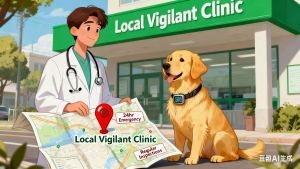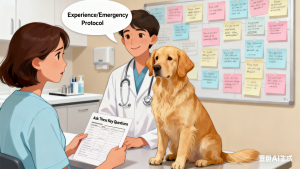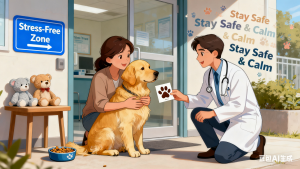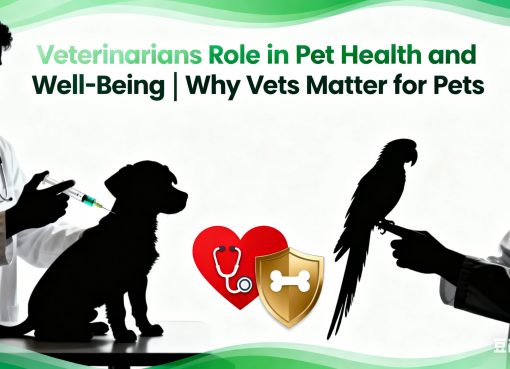How To Choose A Best Vet For Your Pet: 8 Expert Tips (2025 Guide)

Table of Contents
- Introduction: Why Choosing the Right Vet Matters
- Tip 1: Know What to Look for in a Vet (Your Pet’s Needs First)
- Tip 2: How to Find a Good Vet (Proven Methods)
- Tip 3: Avoid “Fly-by-Night” Vets (Red Flags to Watch)
- Tip 4: Prioritize Local, Vigilant Clinics
- Tip 5: Ask These Key Questions When Meeting the Vet
- Tip 6: Confirm the Vet Is Accredited (Non-Negotiable!)
- Tip 7: Get Recommendations from Other Pet Owners
- Tip 8: Stay Safe & Stress-Free During Vet Visits
- Conclusion: Find a Vet You & Your Pet Trust
Introduction: Why Choosing the Right Vet Matters
Your pet is part of the family—and when they’re sick, scared, or due for a checkup, a great vet isn’t just a “service provider” but a partner in their health. The wrong vet, though? It can mean missed symptoms, stressful visits, or even financial strain from unnecessary treatments. Whether you’re a first-time pet parent with a new kitten or a long-time dog owner switching clinics, choosing a vet who fits your pet’s needs, your budget, and your lifestyle is one of the most important decisions you’ll make. This guide breaks down 8 expert tips to help you find a vet you and your furry (or scaly!) friend can rely on.
Tip 1: Know What to Look for in a Vet (Your Pet’s Needs First)
Before you start searching, ask yourself: What does my pet actually need? A Chihuahua’s care needs are different from a parrot’s, and a senior cat with diabetes requires more specialized support than a healthy puppy. Here’s how to narrow it down:
- Pet type & breed: If you have an exotic pet (e.g., a bearded dragon or rabbit), skip general dog-and-cat clinics—look for vets with “exotic animal certification.” For purebred dogs (e.g., German Shepherds prone to hip issues), find a vet familiar with breed-specific health risks.
- Services you’ll use: Do you need routine vaccinations, dental care, or emergency services? If your pet has anxiety, prioritize clinics that offer “fear-free” visits (low-stress environments with calming techniques).
- Visit frequency & budget: If your pet needs monthly medication checks, ask if the clinic offers discounts for recurring visits. Compare costs for core services (e.g., a wellness exam, rabies vaccine) to avoid sticker shock—prices can vary by 20-30% between local clinics.

Tip 2: How to Find a Good Vet (Proven Methods)
Finding a vet isn’t about picking the first name on Google—it’s about using trusted sources to narrow your options. Try these strategies:
- Ask fellow pet owners: Strike up a conversation at the dog park, pet store, or even your neighborhood’s “pet parent” Facebook group. People love recommending vets who’ve gone above and beyond (e.g., “Dr. Lee stayed late to help my sick puppy!”).
- Use targeted search tools: Google Maps works, but add filters like “exotic pet care” or “emergency services” to refine results. Sites like VetRatingz.com or Yelp let you read reviews from other owners—pay attention to comments about wait times and how staff handles nervous pets.
- Visit local animal shelters: Shelter staff interact with vets daily and can point you to clinics that are affordable, compassionate, and good with rescue pets (who often have unique health needs).

Tip 3: Avoid “Fly-by-Night” Vets (Red Flags to Watch)
Not all clinics are created equal—and some “vets” prioritize profit over pet health. Here’s how to spot the red flags:
- No physical clinic: If a “vet” only offers house calls with no permanent address, or refuses to let you tour their space, walk away. Legitimate clinics have clean, accessible facilities.
- Low ratings + vague reviews: A few bad reviews are normal, but if most comments say “rude staff,” “missed diagnoses,” or “pushy sales for treatments,” steer clear.
- Unrealistic promises: If a vet claims they can “cure” a chronic issue (e.g., asthma in cats) with unproven treatments, it’s a warning sign. Trust vets who explain risks and options, not just quick fixes.

Tip 4: Prioritize Local, Vigilant Clinics
A vet who’s 10 minutes away is a lifesaver when your pet has a middle-of-the-night emergency (e.g., eating a toxic plant). Local clinics also know your area’s unique risks—like regional parasites (e.g., heartworms in the South) or seasonal allergies. Here’s how to find them:
- Ask pet stores & groomers: Your local pet boutique or groomer works with nearby vets and can tell you which ones are responsive (e.g., “Clinic X always gets back to us within an hour if a groomed dog has a cut”).
- Map clinics within 5-10 miles: Use Google Maps to circle clinics close to home, then check their hours—look for ones with evening or Saturday slots if you work 9-5.
- Tour the clinic: Stop by unannounced (during non-peak hours!) to check cleanliness. Are the exam rooms tidy? Do the staff greet pets calmly (not roughly)? A vigilant clinic cares about small details.

Tip 5: Ask These Key Questions When Meeting the Vet
Once you’ve narrowed down 2-3 clinics, schedule a “meet-and-greet” (many offer free consultations!). This is your chance to interview the vet—here are the non-negotiable questions to ask:
- “How long have you been practicing, and what’s your experience with [your pet’s type/breed]?” (e.g., “Do you work with senior cats often?”)
- “What’s your approach to fear-free care? How do you help nervous pets?” (Look for answers like “We use pheromone sprays and slow introductions.”)
- “What emergency services do you offer? Do you have a 24/7 line, or do you refer to an emergency clinic?”
- “Can you walk me through the cost of a routine wellness exam and core vaccines?” (Avoid vets who dodge price questions.)
- “How often do you disinfect exam rooms and equipment?” (Cleanliness prevents the spread of germs like parvovirus.)

Tip 6: Confirm the Vet Is Accredited (Non-Negotiable!)
Accreditation means the vet has passed rigorous exams and follows industry standards—this is non-negotiable for your pet’s safety. Here’s how to verify:
- Ask for proof: Ask the receptionist to show you the vet’s license (it should be issued by your state’s veterinary board) and any certifications (e.g., “Fear Free Certified” or “Exotic Animal Practice Certified”).
- Check online: Search your state’s veterinary licensing board website (e.g., “Texas Board of Veterinary Medical Examiners”) to confirm the vet’s license is active (not expired or suspended).
- Avoid “unaccredited” claims: If a vet says “I don’t need accreditation because I’ve been practicing 20 years,” run—accreditation ensures they’re up-to-date on new treatments (e.g., laser therapy for arthritis).

Tip 7: Get Recommendations from Other Pet Owners
Online reviews are helpful, but nothing beats a personal recommendation from someone you trust. Here’s how to find them:
- Join local pet groups: Facebook groups like “Chicago Dog Parents” or “Los Angeles Cat Lovers” are goldmines—post a question like “Looking for a vet who’s great with shy cats—any recs?”
- Talk to neighbors: If you see someone walking their dog, say, “Your pup looks happy! Do you have a vet you love?” Most pet owners are happy to share positive experiences.
- Ask your current vet (if switching): If you’re moving, your current vet may have connections in your new area—they can refer you to colleagues they trust.

Tip 8: Stay Safe & Stress-Free During Vet Visits
Once you’ve chosen a vet, make visits as smooth as possible for you and your pet:
- Avoid peak times: Skip weekends, holidays, or after-work hours (4-7 PM)—these are when clinics are busiest, leading to longer waits (and more stressed pets). Aim for weekday mornings (9-11 AM) instead.
- Prepare your pet: Bring their favorite toy or blanket to calm them down. For dogs, take a short walk before the visit to burn off energy; for cats, use a carrier with a towel over it to reduce anxiety.
- Communicate openly: If your pet hates being handled, tell the vet—they’ll adjust their approach (e.g., using a gentle hold instead of a restraint). If you can’t afford a treatment, ask about payment plans or generic alternatives.

Conclusion: Find a Vet You & Your Pet Trust
Choosing a vet isn’t a one-time decision—it’s about building a relationship that lasts your pet’s lifetime. By prioritizing your pet’s needs, avoiding red flags, and asking the right questions, you’ll find a vet who doesn’t just treat your pet, but cares about them. Remember: The best vet is one where your pet walks in (or is carried in!) without trembling, and where you feel heard when you share your concerns. With these tips, you’re one step closer to that perfect partnership.




Leave a Comment